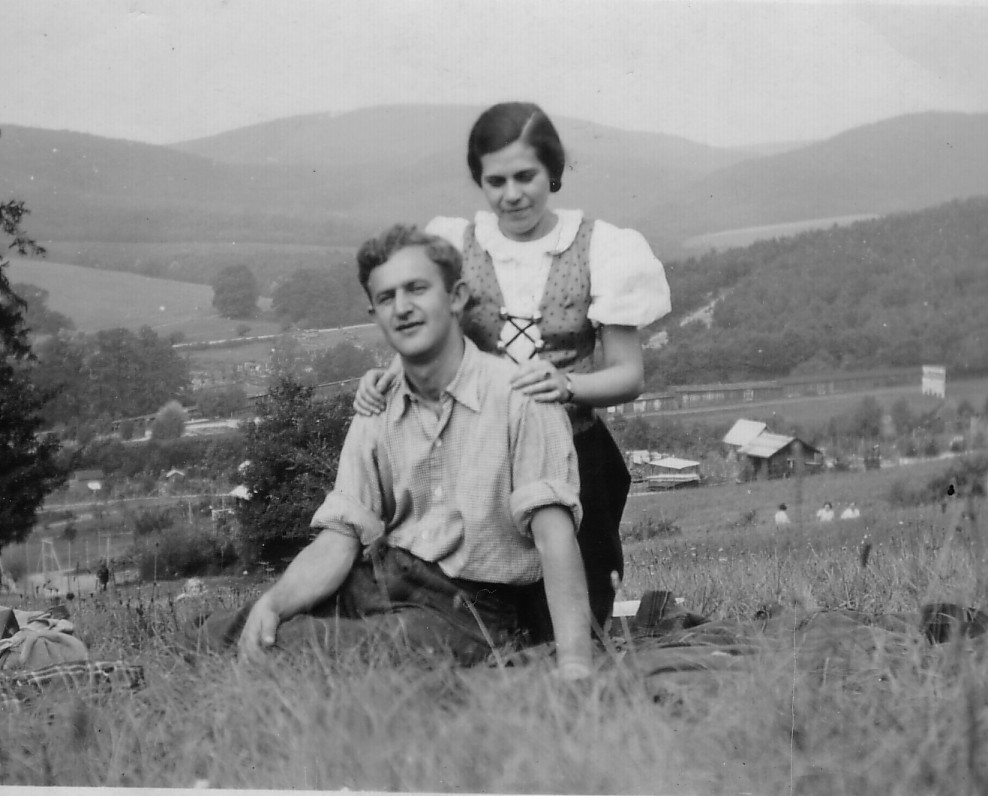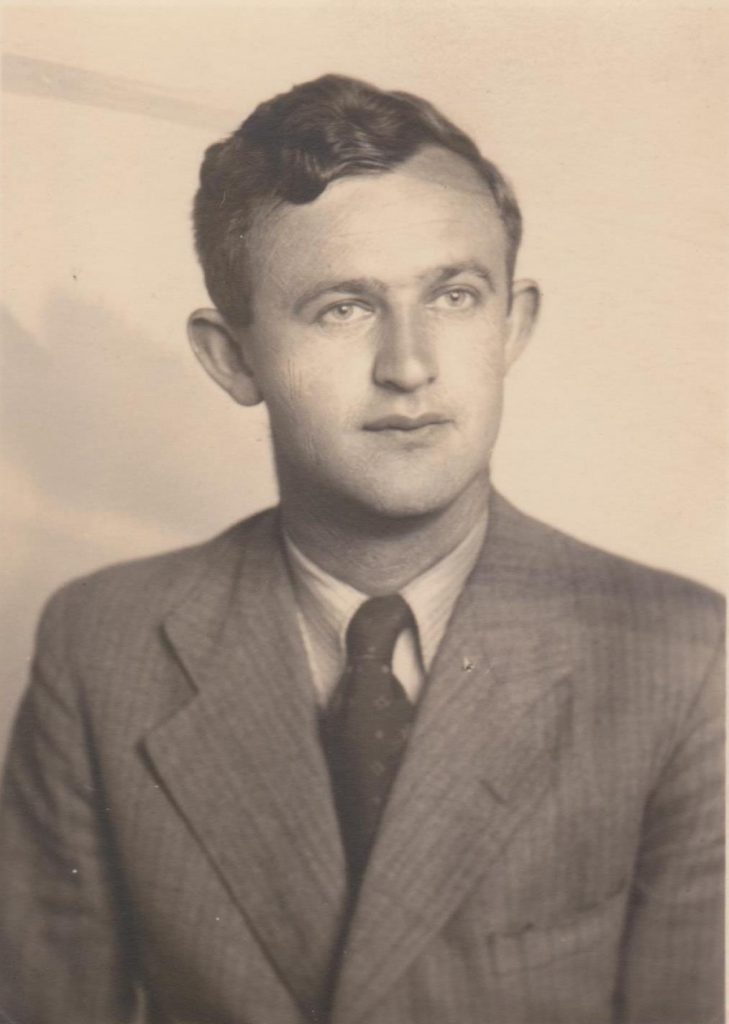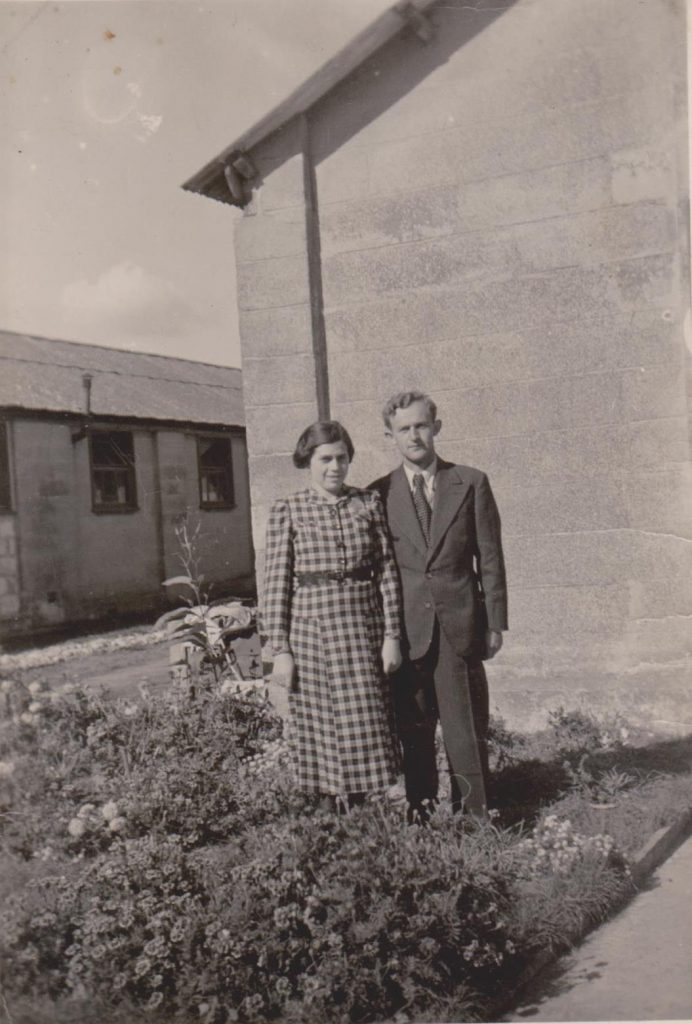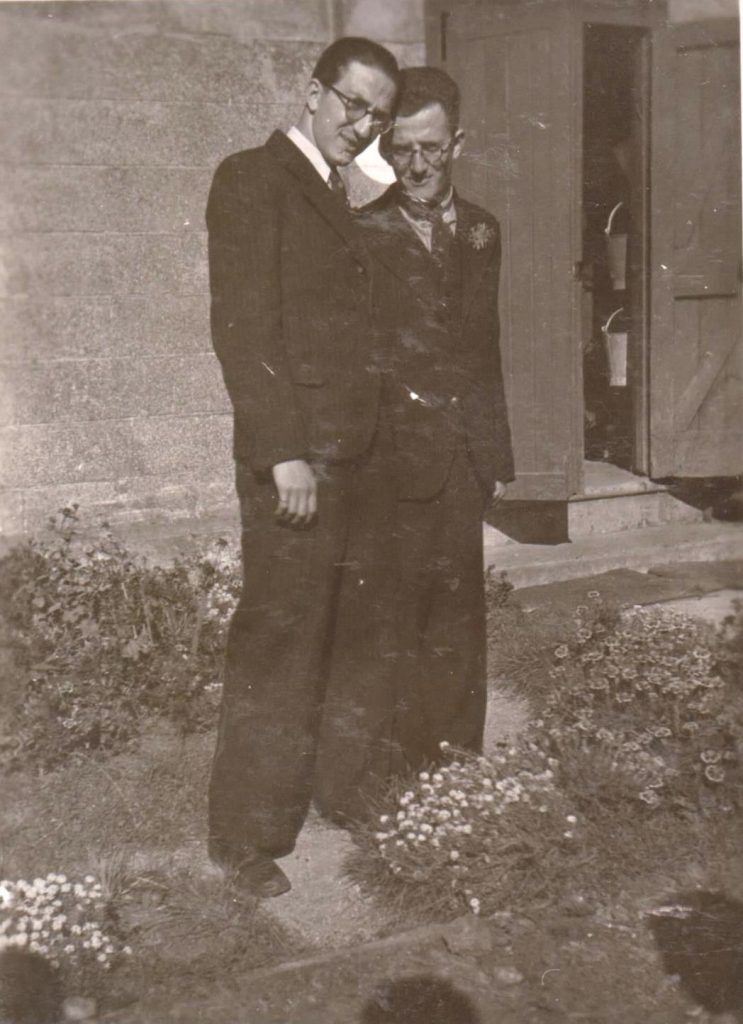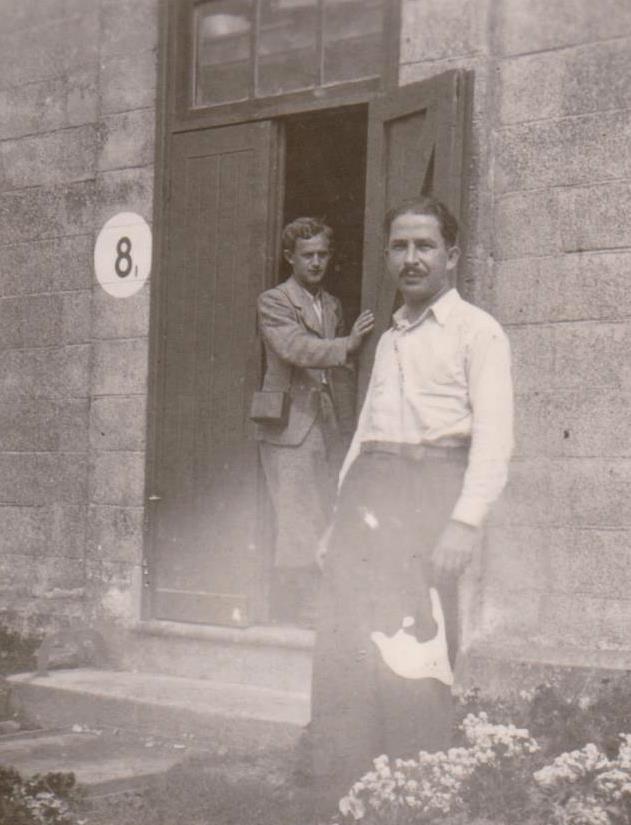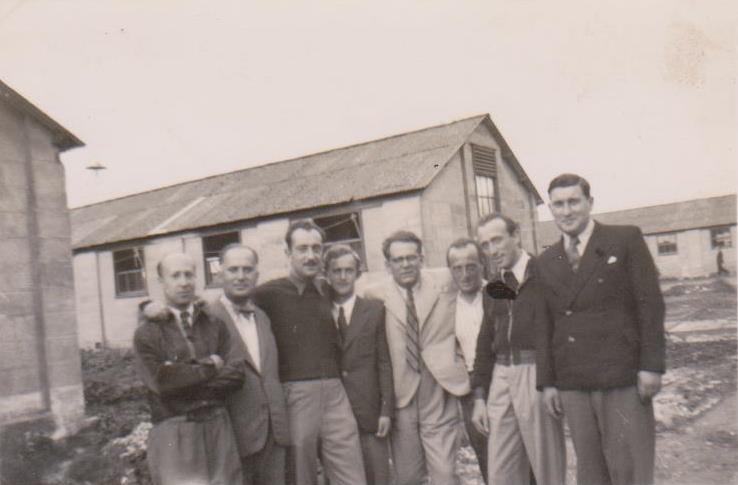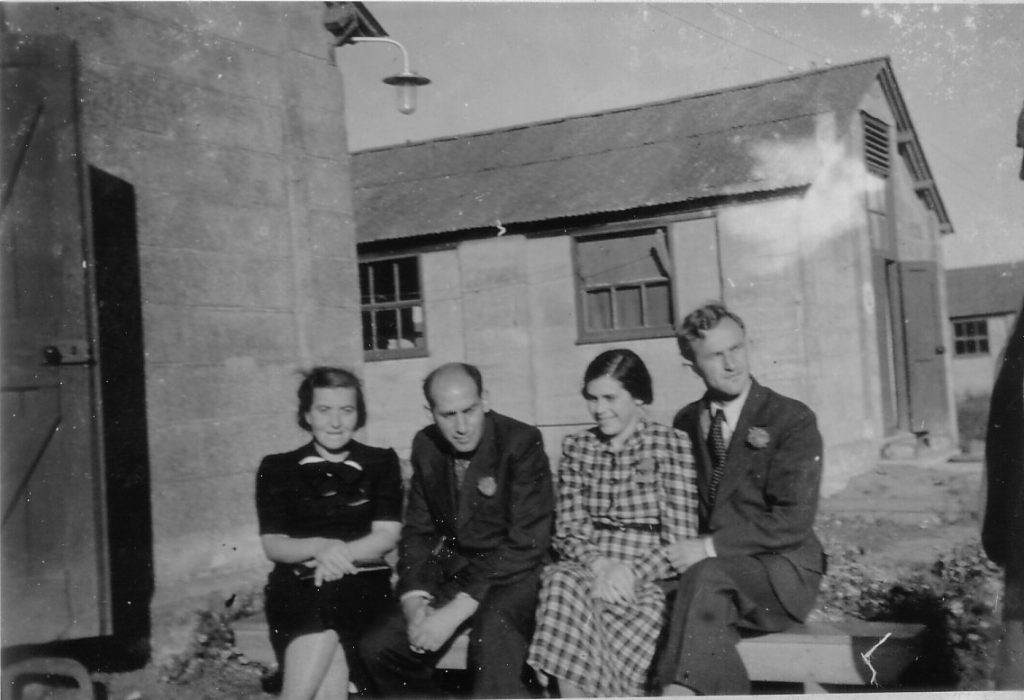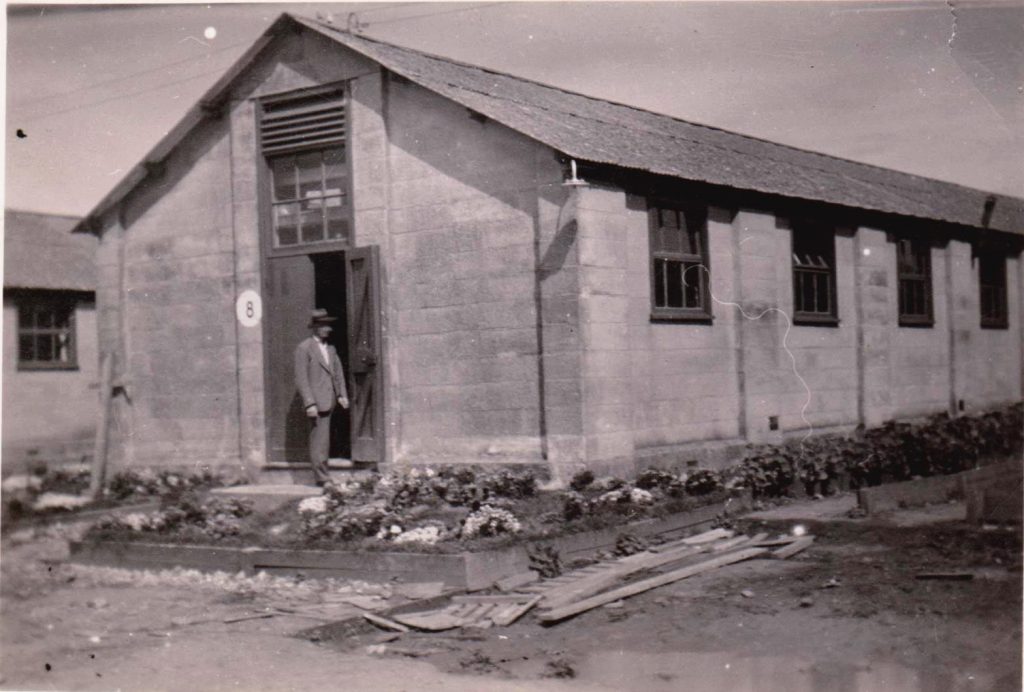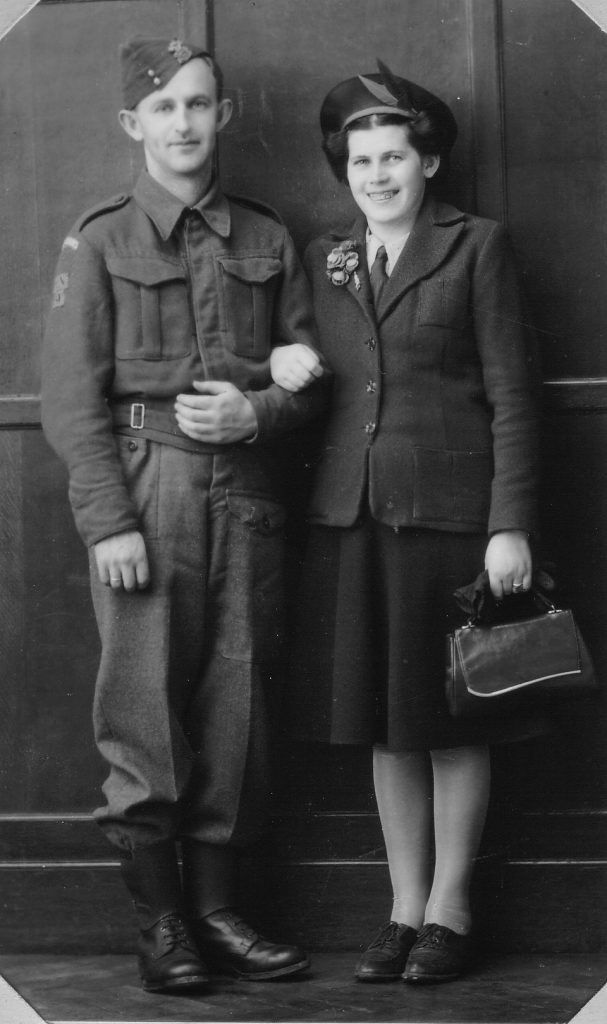Born: Vienna, Austria, 4 September 1913
Profession in country of origin: Textile technologist
Arrived in Britain as a refugee from Germany on 19 April 1939
Documents
Male enemy alien - Exemption from internment - Refugee
Surname: Finkelstein
Forename: Herbert
Alias: -
Date and place of birth: 04/09/1913 in Vienna Nationality: German
Police Regn. Cert. No.: 711 551
Home Office ref: T 439
Address: Kitchener camp, Richborough, Sandwich, Kent
Normal occupation: Weaver
Present occupation: Storeman (camp bicycle store)
Name and address of employer: -
Decision of tribunal: Exempted "C"
Date 03.10.1939
Whether exempted from Article 6(A): Yes Whether desires to be repatriated: No
Richborough camp, Tribunal no. 3
Source: National Archives, Home Office: Aliens Department: Internees Index, 1939-1947.
Editor’s note: We are not allowed to reproduce National Archives (UK) images, but we are permitted to reproduce the material from them, as shown above.
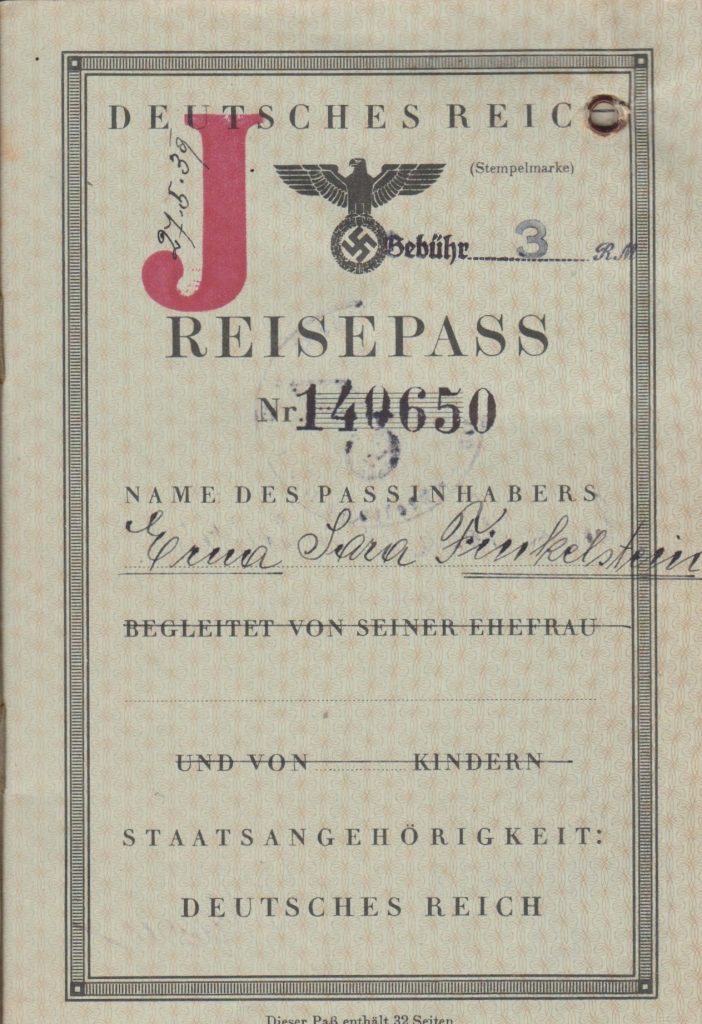
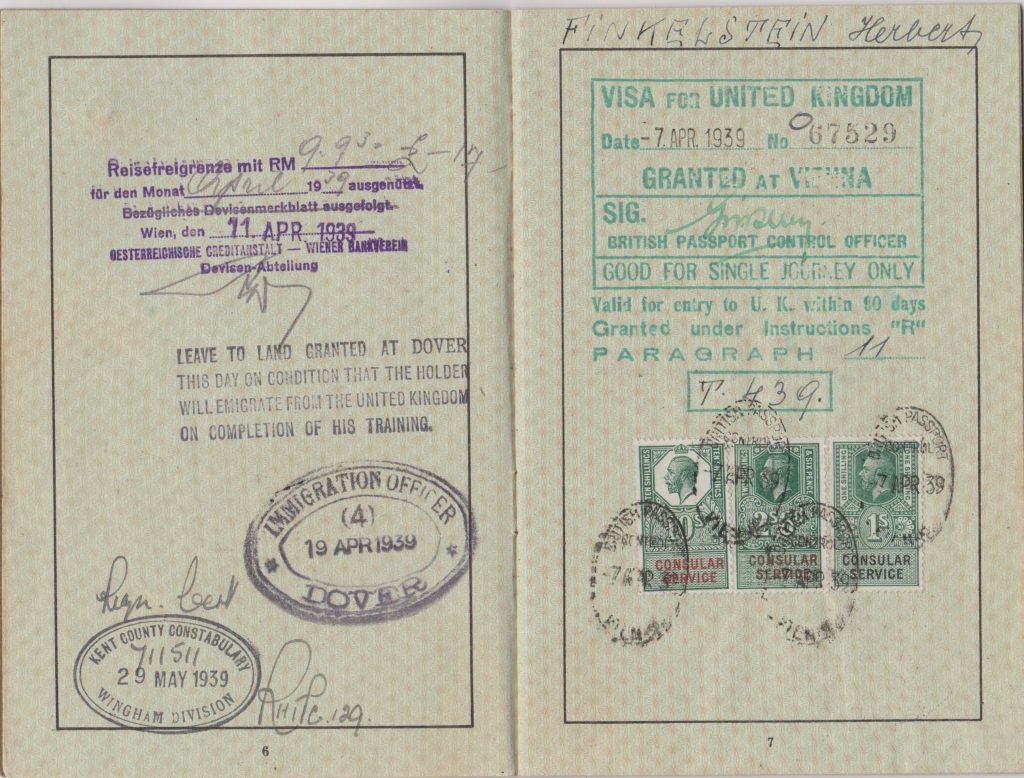
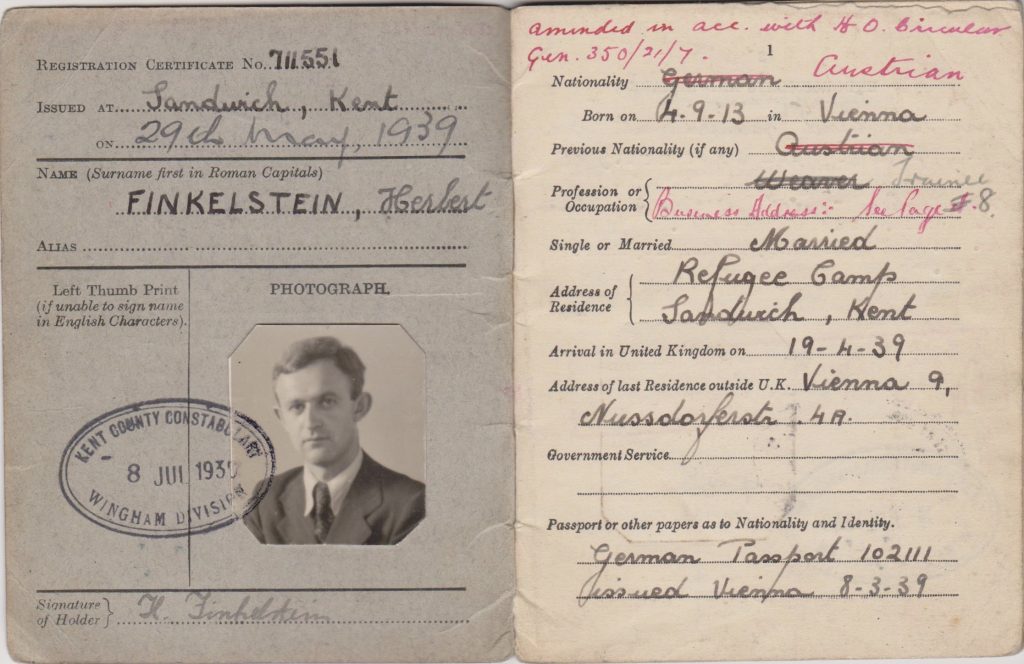
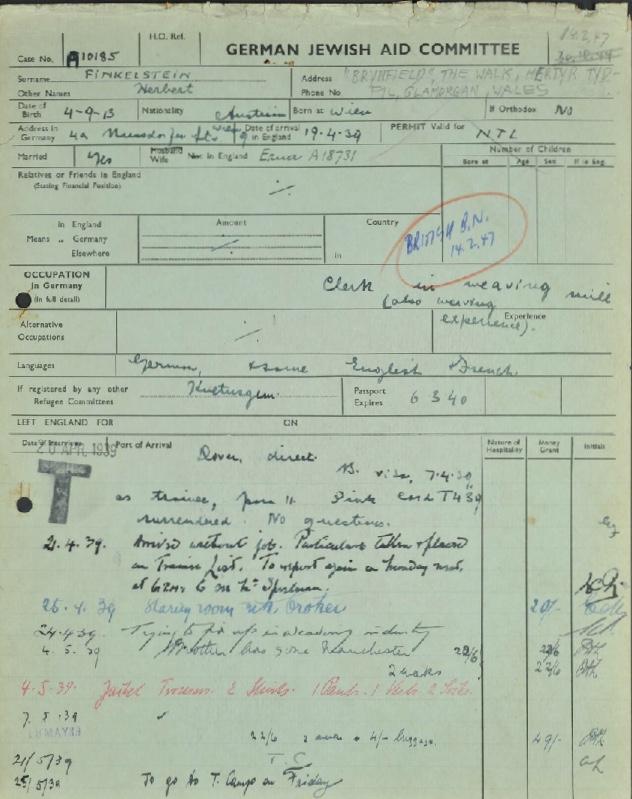
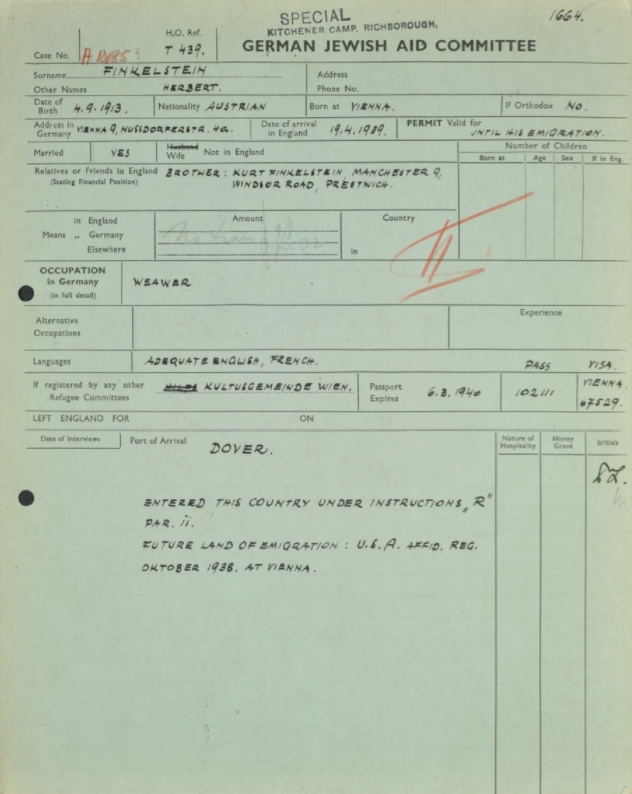
Camp / arrival number 1664
Arrival in Britain 19 April 1939
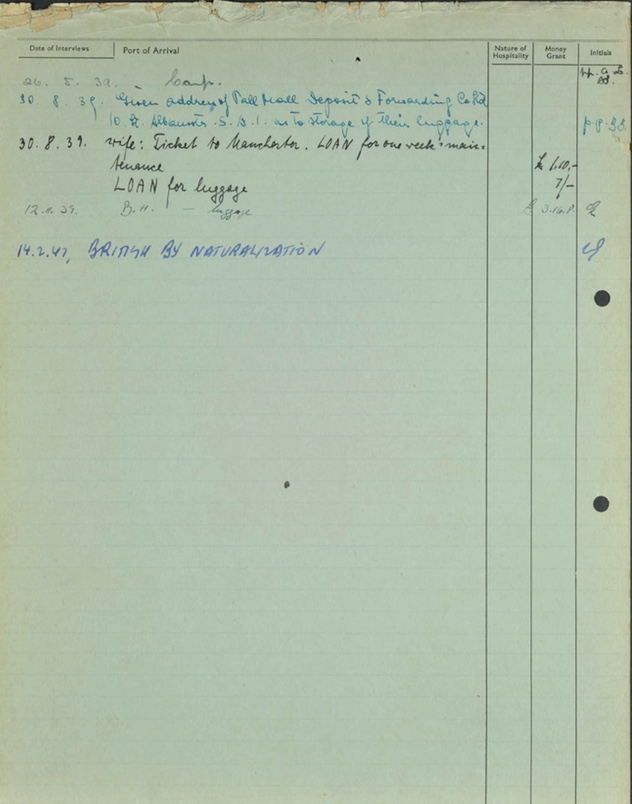
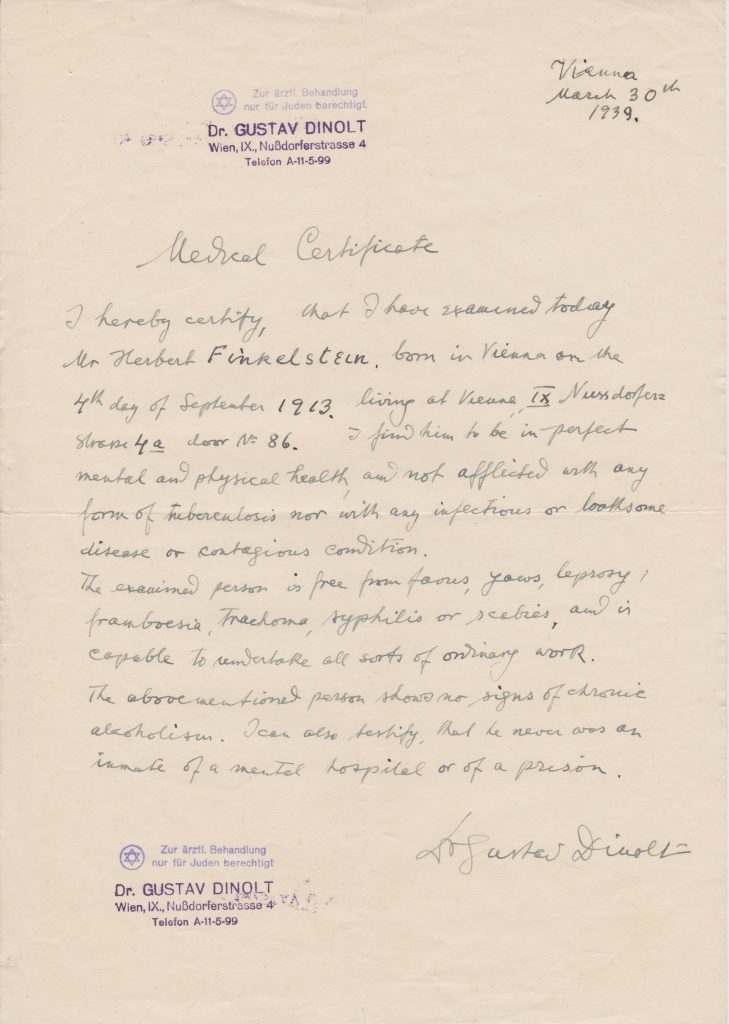
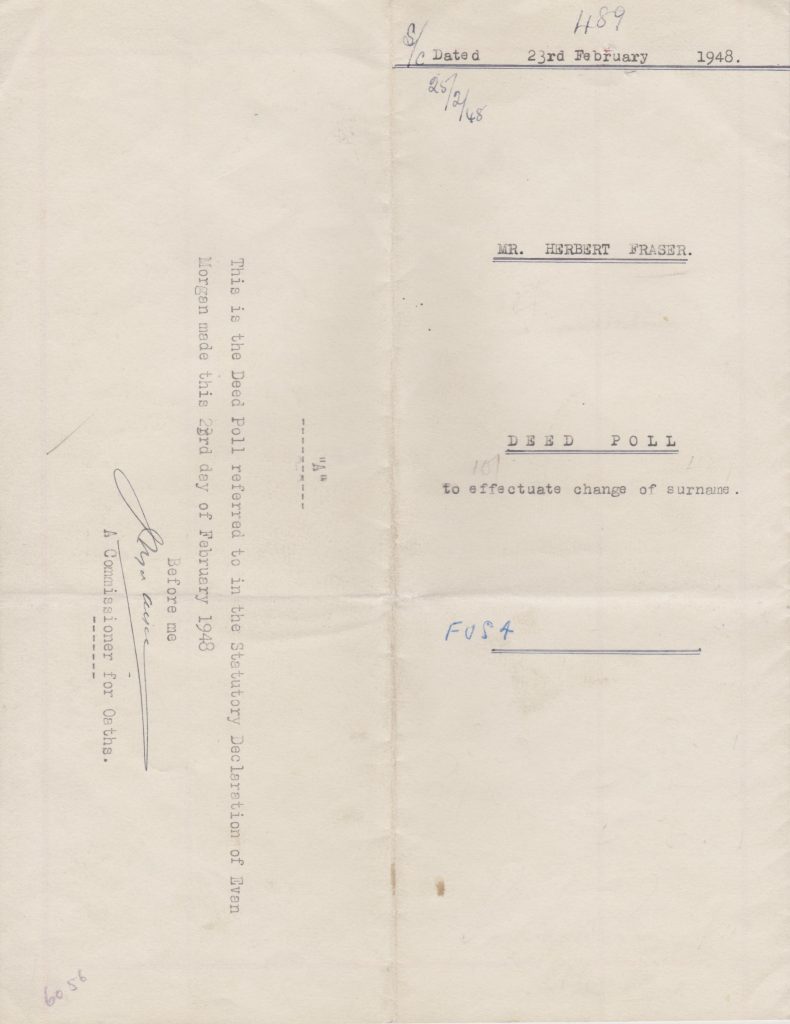
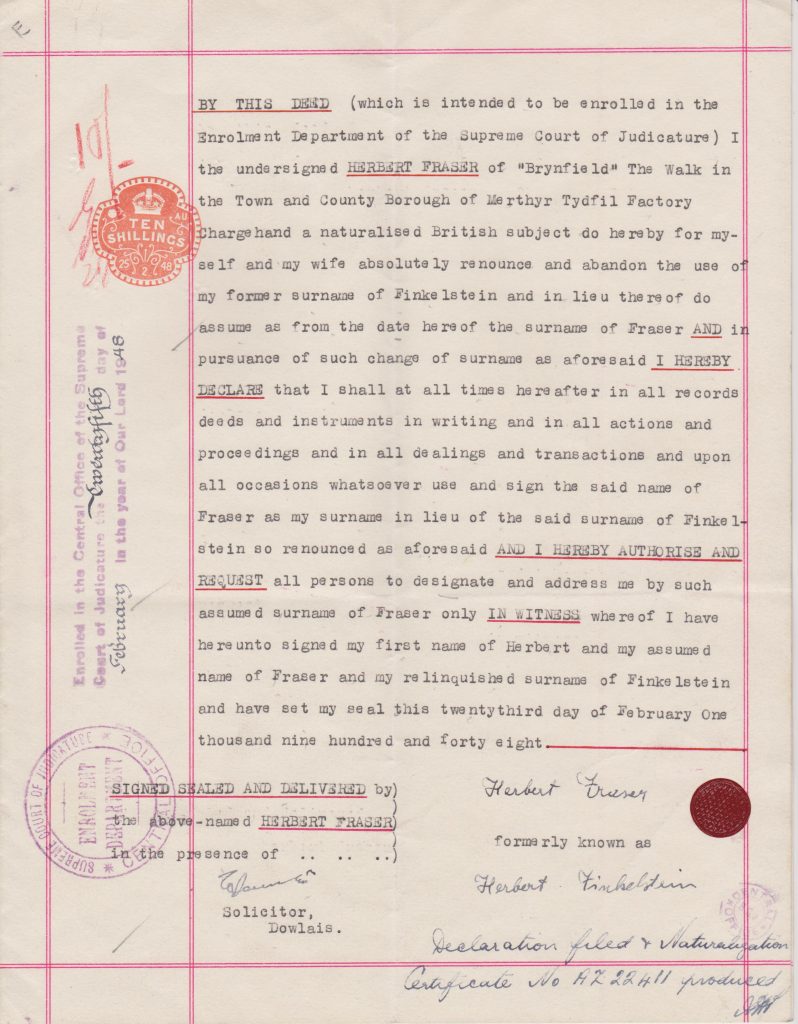
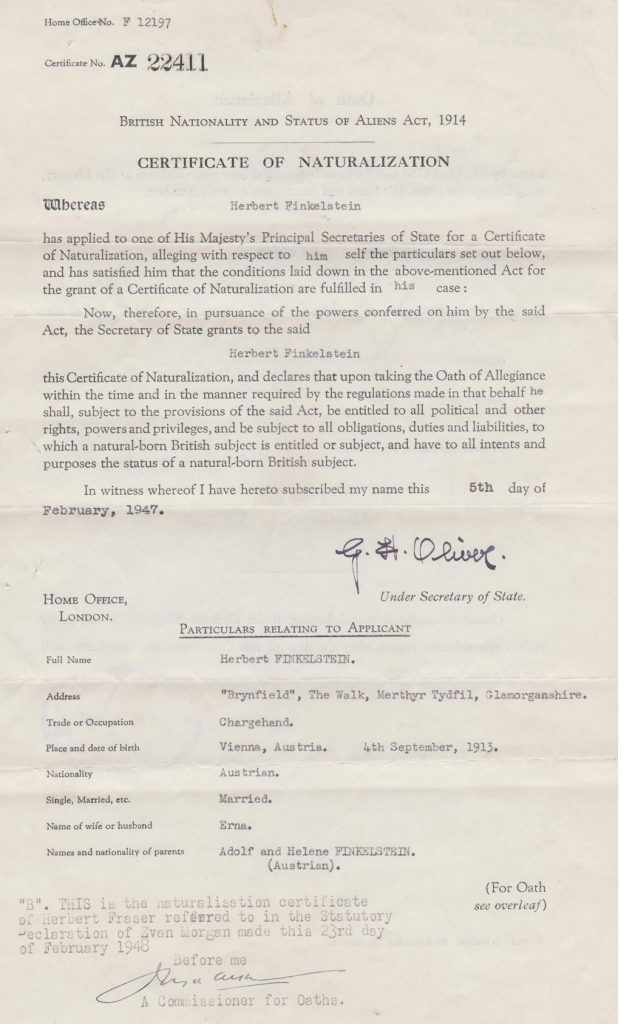
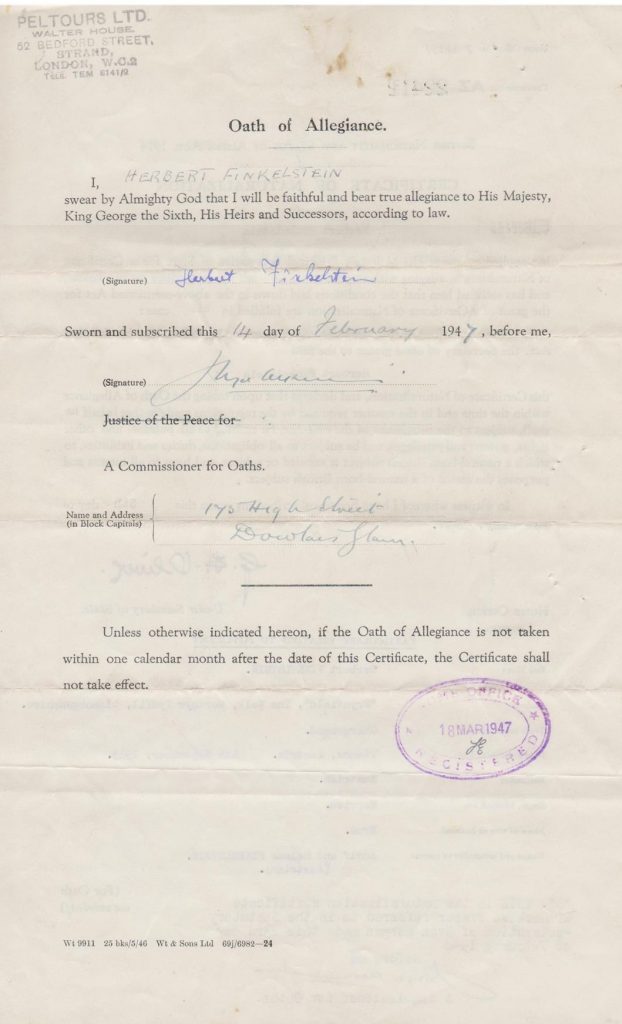
Documents submitted by Robert Fraser, for his father, Herbert Finkelstein
Letters
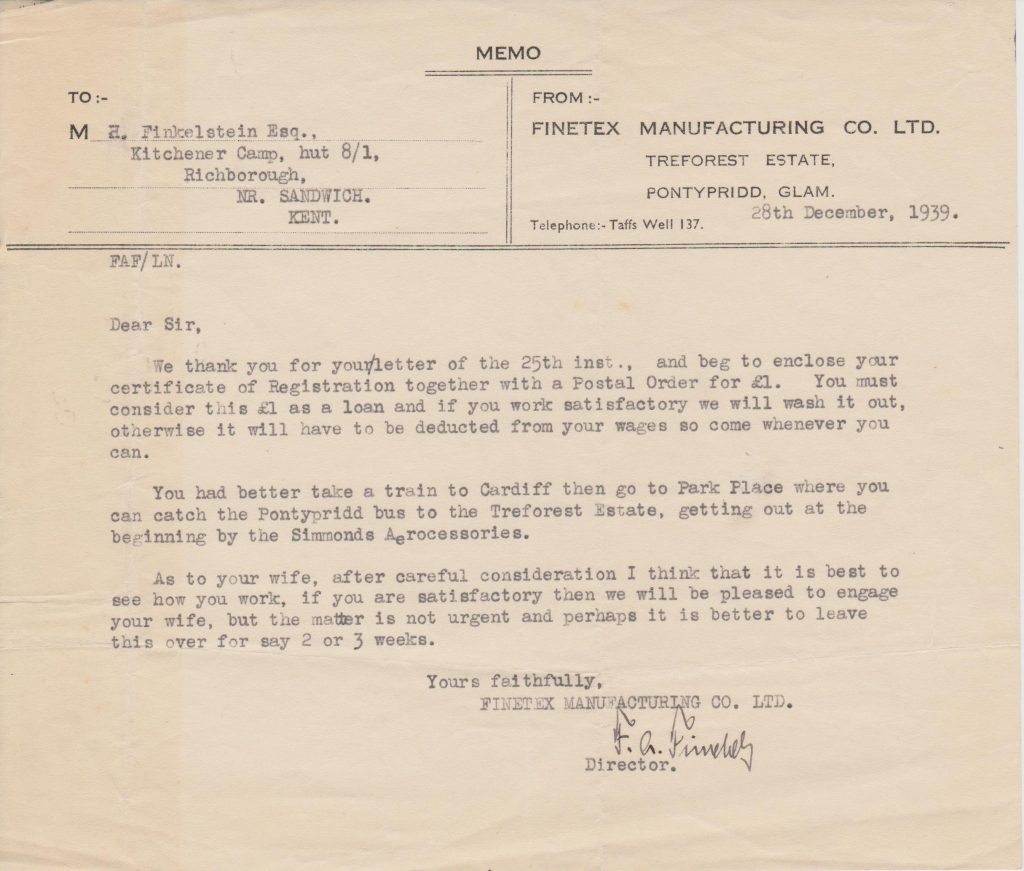
Memories
Herbert Finkelstein was born in Vienna in 1913.
He trained as a textile technologist and worked for a firm owned by a relative. He was arrested as part of Kristallnacht on 10 November 1938 and sent to Dachau. He was released on 10 March 1939 after his father and fiancée managed to obtain the relevant migration documents.
Herbert married Erna Nowak in April 1939 and left his homeland three days later.
Herbert arrived in Britain on 19 April 1939 and after a few days in London with a Jewish family, the Mazins, he travelled to Kitchener Camp.
Herbert’s ‘Exemption from Internment’ card, an image of which was obtained by the family from the National Archives in London, notes that Herbert’s police registration certificate number was 711551; and his Home office number was T439. He is registered here as a weaver in his previous occupation, and as working in the camp bicycle store at Kitchener. Herbert was placed in ‘C’ category by the tribunal for exemptions when war broke out.
Some months after war broke out, Herbert and Erna were sent a certificate with a job offer, which entitled them to travel to South Wales. Herbert took up a job as a weaver here, making webbing for military uniforms, which was presumably a ‘reserved occupation’. Thus, Herbert left Kitchener in January 1940.
The Finkelsteins initially lived in Cardiff, but when new residence regulations for Aliens came in, they had to move away from the coast and ended up in Merthyr Tydfil, where they stayed. Herbert took his turn at fire-watching during the war, and also joined the Home Guard, in 1944.
After the war, Herbert and Erna were to spend the rest of their lives in South Wales.
History submitted by Robert Fraser, for his father, Herbert Finkelstein, November 2017
Additional note
‘I have revisited my late Mother’s memoirs, which I have transcribed (and which formed the basis for my family biography) and see the following sentence:
“… the transit permit as well. This was a mammoth task and Herbert’s aunt Selma played a great part. She wrote immediately to her son’s friend Robert Engel (now Elton) who was already in England and in a position where he could do his utmost to help. Eventually this good friend managed to send such a permit not only for Herbert but also for his brother, Kurt.”
So Robert Engel was instrumental in saving my father’s life.”
Submitted by Robert Fraser, for his father, Herbert Finkelstein
Photographs
Photographs submitted by Robert Fraser, for his parents, Erna and Herbert Finkelstein

